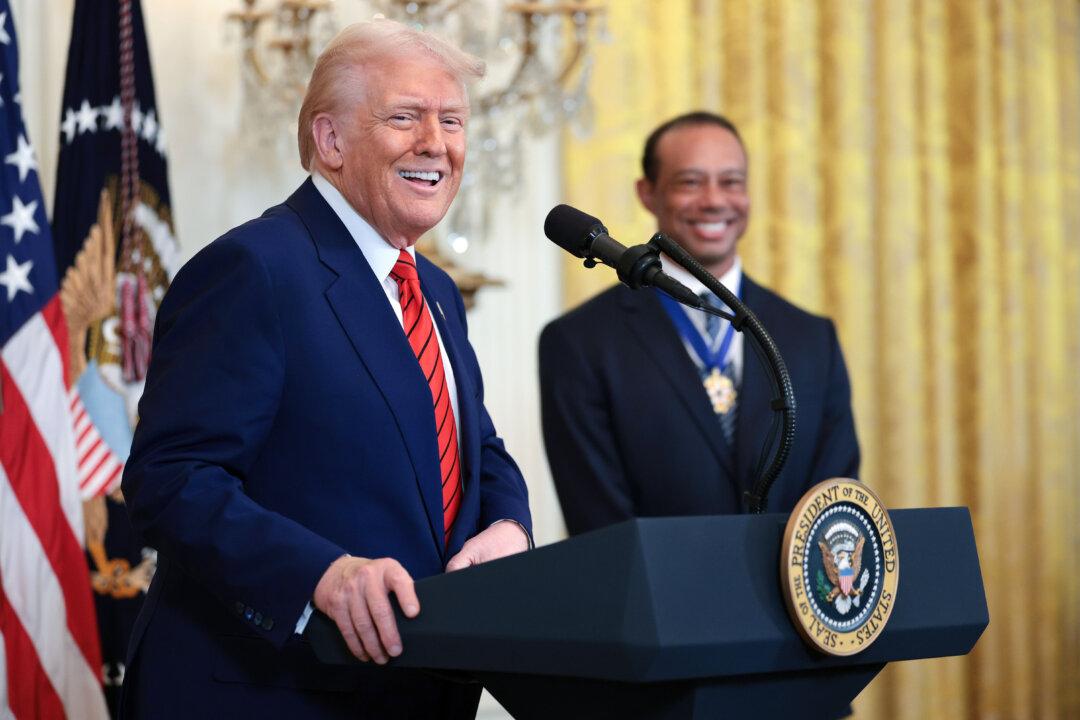President Donald Trump hosted a reception at the White House on Feb. 20, celebrating Black History Month and the role African Americans have played in U.S. commerce and the Revolutionary War.
Trump invited a group of black political figures, activists, and celebrities, including golf legend Tiger Woods, Sen. Tim Scott (R-S.C.), ESPN host Sage Steele, former NFL player Jack Brewer, football legend and U.S. ambassador to the Bahamas nominee Herschel Walker, and Alveda King, a niece of the Rev. Martin Luther King, Jr. (MLK).





